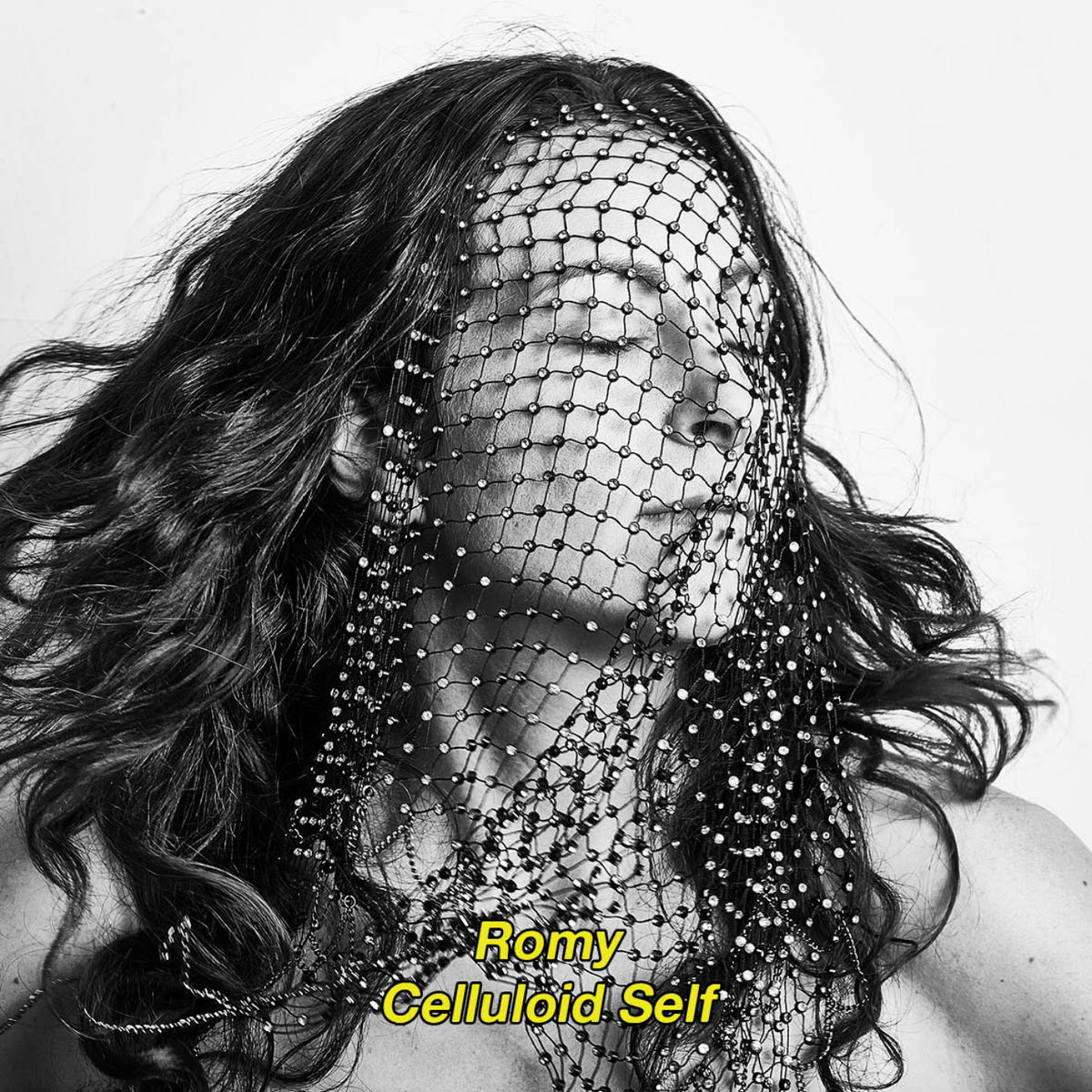
Romy
Celluloid Self
CLIMAX!
When we first saw Los Angeles’ Romy perform at Das Bunker’s 20th Anniversary Festival some years back, we were struck by exactly how much territory her material visited. The songs played at that event showed both a grasp of hooks and pop structure, but were filtered through industrial and wave sensibilities. The producer-performer’s debut album Celluloid Self delivers that same mixture of sounds and ideas with a kind of restless energy, never settling for too long in one mode or tone.
That variety really proves to be the LP’s strong points. Opener “Flux” goes for a strictly sequenced bass and drum hits and hard monotone vocals, which makes it all the more impactful when second track “Broken Halo” breaks out into a huge, instantly memorable chorus, transforming the bubbling tempo from stern and mechanical to exuberant and vital. It’s not even that the particular set of sounds Romy uses changes dramatically; the synths and drum programming on “Bow” and “Eros” are closely related, but the bounce of the former gives it an italo flavour while the choppy programming of the latter almost reads like classic dark electro.
That invoking and switching up of signifiers on Celluloid Self also works as a complement to Romy’s performance as a vocalist, allowing her the opportunity to develop her personality for the listener. The appropriately titled “Normal Day” reads as an homage to “Warm Leatherette”‘s take on sex through the post-industrial lens, but its frankness with regards to self-pleasuring is both unexpected and audacious. It sits directly next to the electro-punk of “Mothers Child” where she examines inherited personality traits with a mixture of clinical detachment and anxious worry, and dancefloor rave-up “Abduct Me”, an arch bit of seductive disco candy.
While not everything Romy attempts necessarily lands (the druggy “Twin Peaks” and the minimal wave of “Linear Motion” feel less singular than the tracks that surround them) it’s genuinely remarkable how much ground gets covered effectively on Celluloid Self. Sliding a darkwave track like the enchanting “Parasols” in, and capping the record with the bracing body-music of “No Audience” are moves that could have fallen flat, but the personality and commitment on display make them work. Constantly shifting but staying focused and present, Romy’s dedication to herself and her material pays dividends.






Trackbacks/Pingbacks